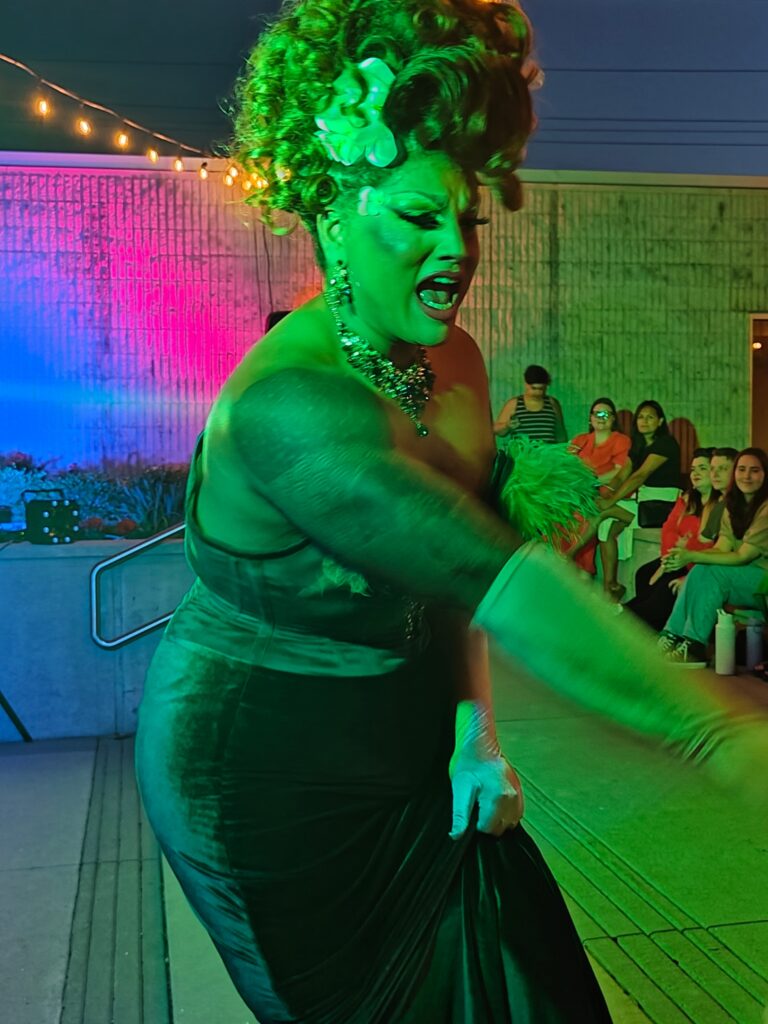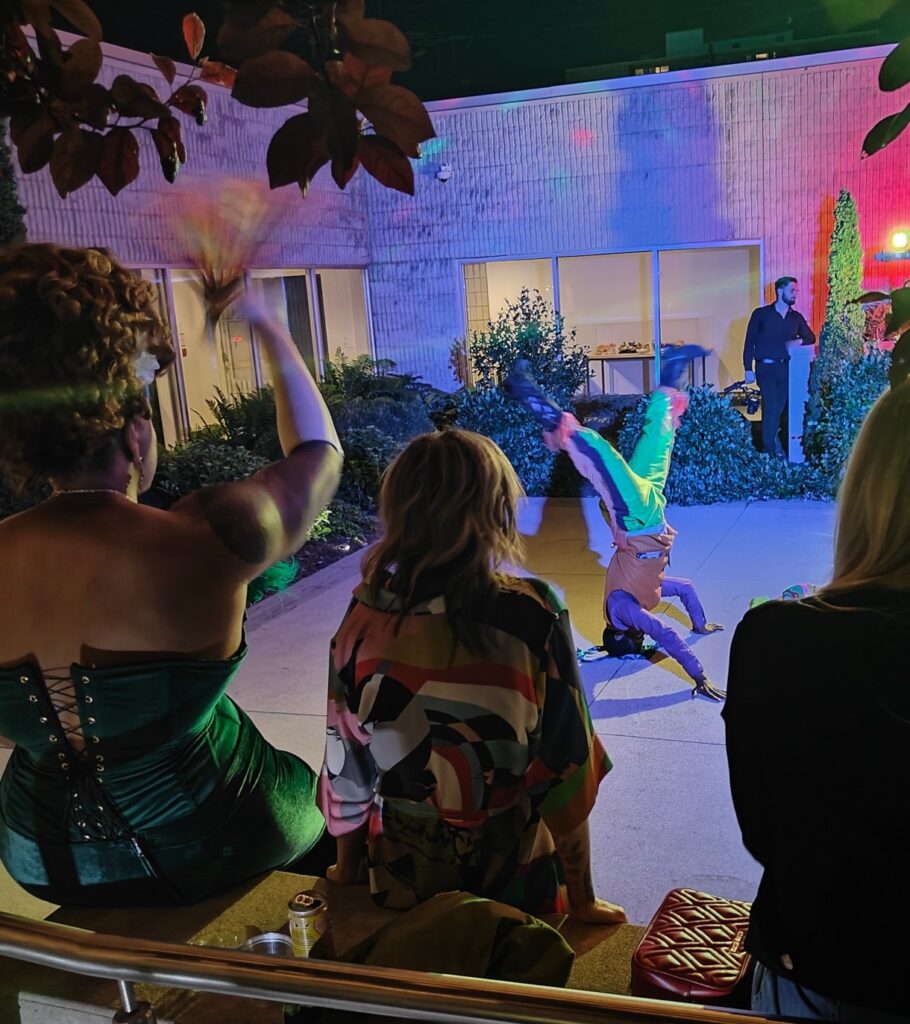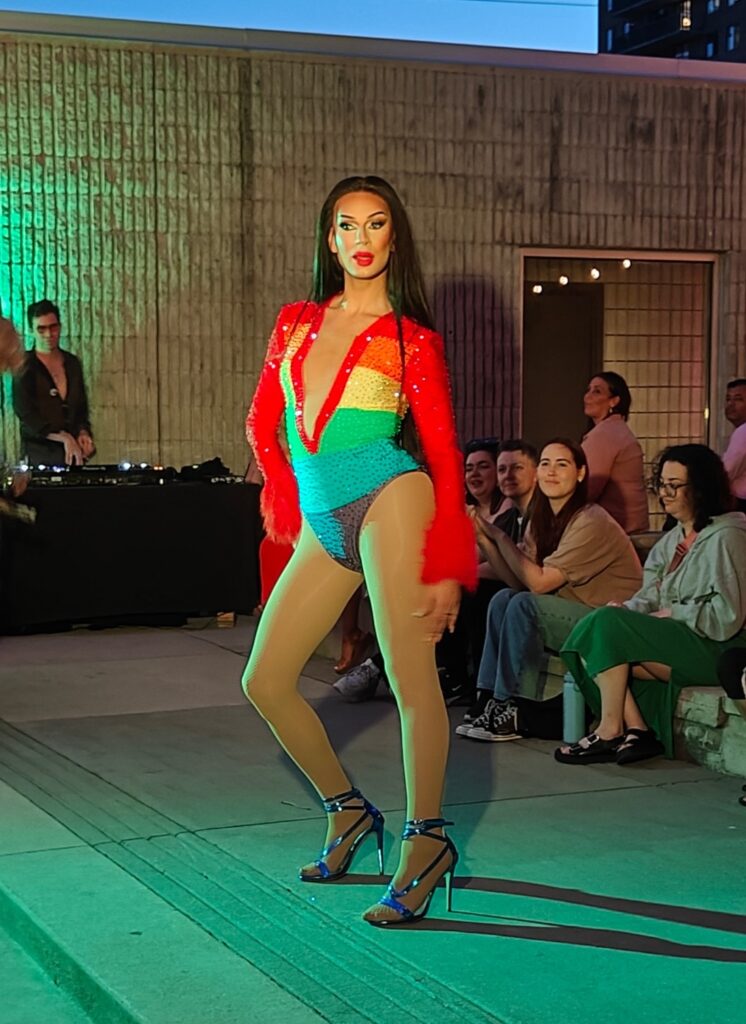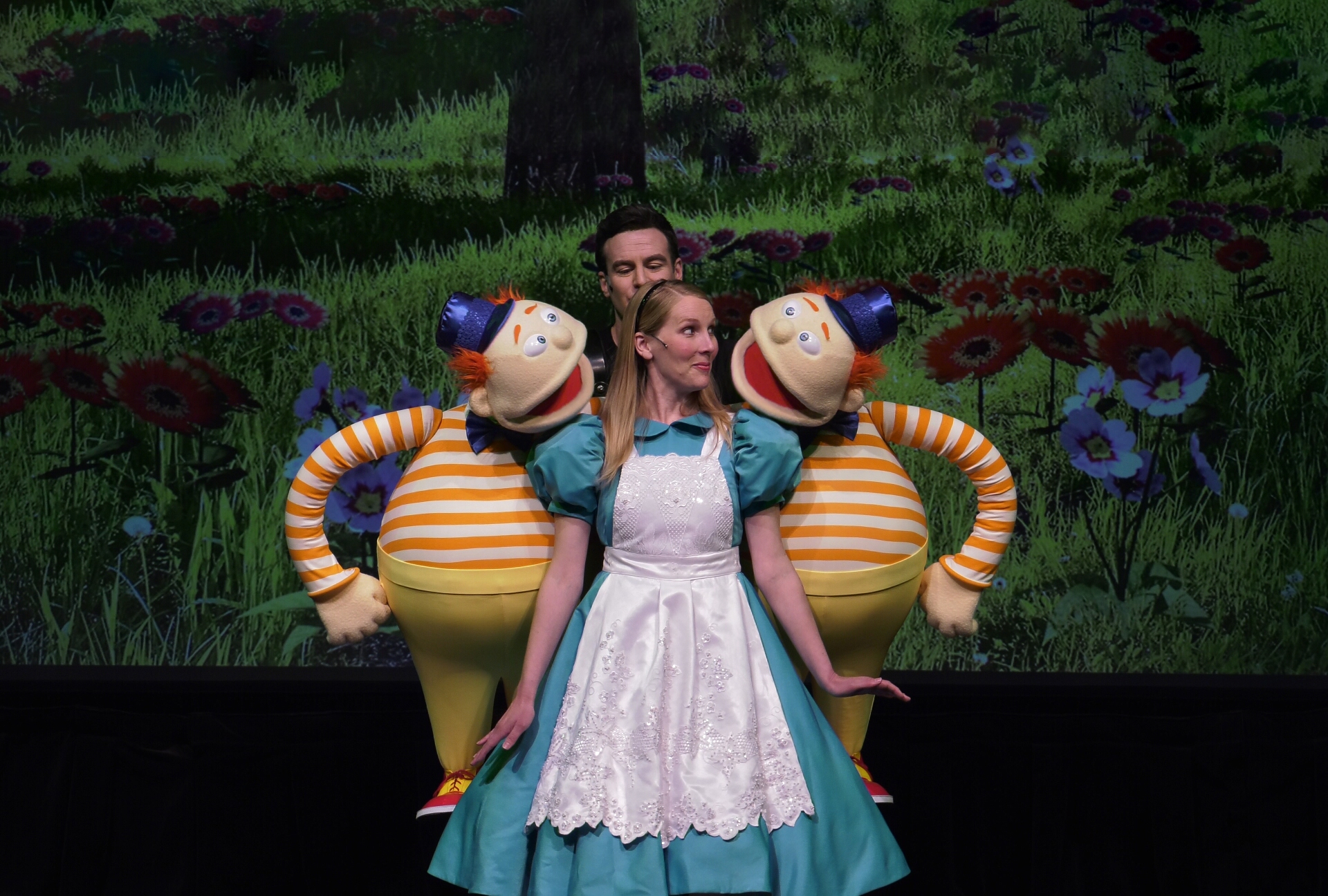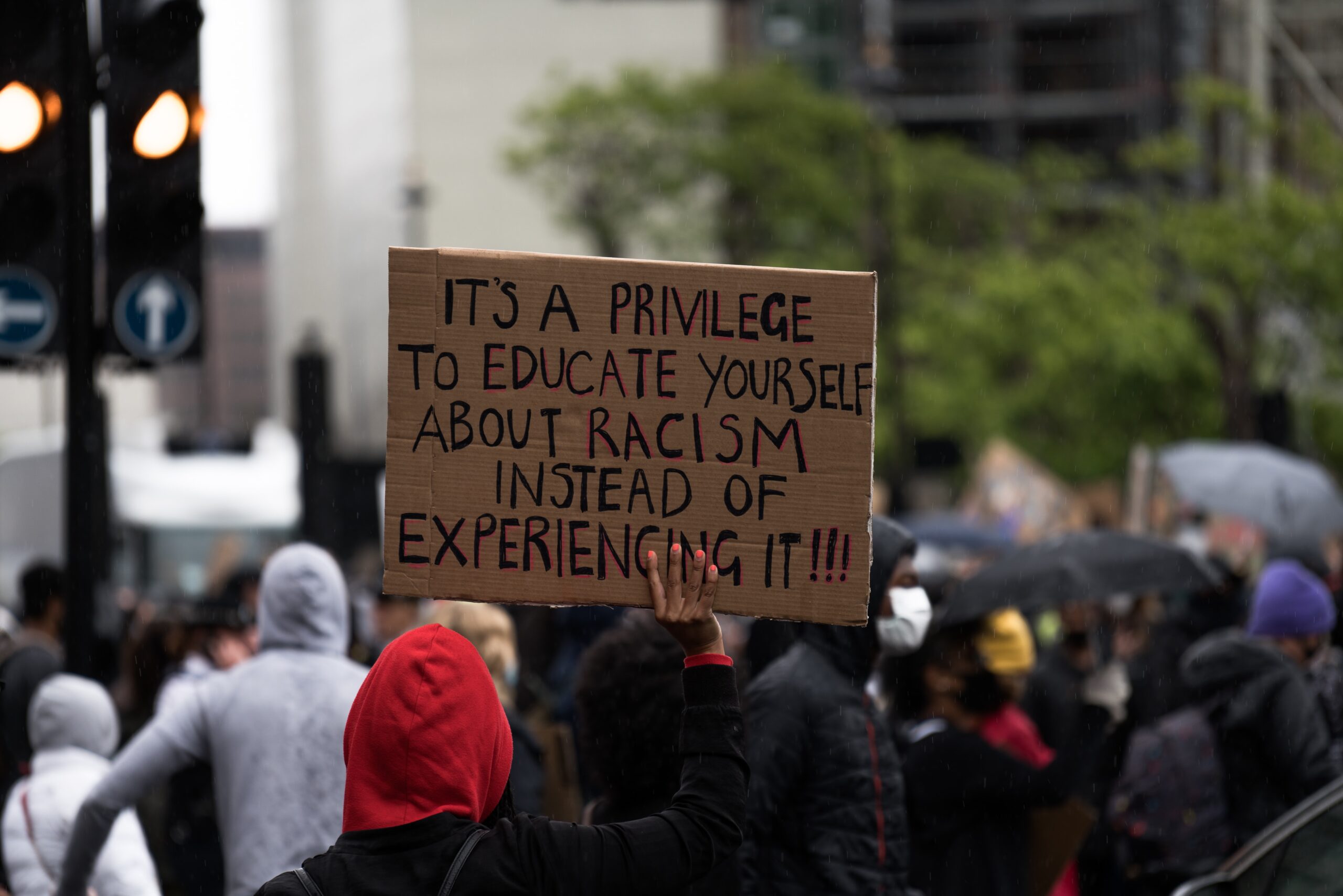By Rebecca Gruszka, Local Journalism Initiative Reporter
Earlier this month, the Halton Equity Diversity Roundtable (HEDR) hosted its Pride Lecture and Garden Soiree at the Art Gallery of Burlington (AGB) in celebration of Pride Month.
The event included a lecture on workplace inclusion from Egale, a community art project called “One World Many Threads,” and a drag show featuring performers associated with Drag Academy. The event was catered with small bites with a Persian spin by catering company Noushe; apart from the open bar, the evening was free to attend.
Though she was unable to attend in person, Mayor Marianne Meed Ward sent a video message to the crowd and the entire 2SLGBTQIA+ community: “You are welcome here.”
Drag queen Kenadie St. James hosted the lecture portion of the event, warming up the crowd prior to the lecture proper.
Kyle Weitz from Egale, a national 2SLGBTQIA+ advocacy organization, led the lecture on “Workplace Inclusion for Gender and Sexual Diversity.” The lecture covered the basics of gender identity versus sexuality, and the organizational impact of inclusion, with a discussion of workplace practices that can hinder and help in creating inclusion in that sphere.
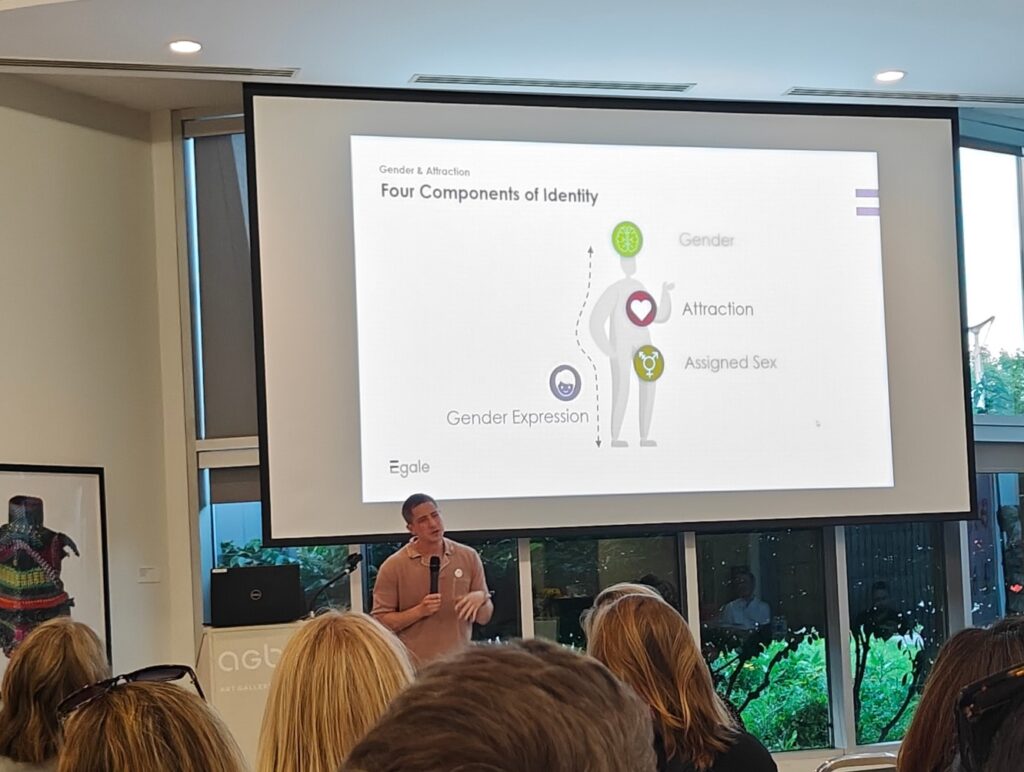
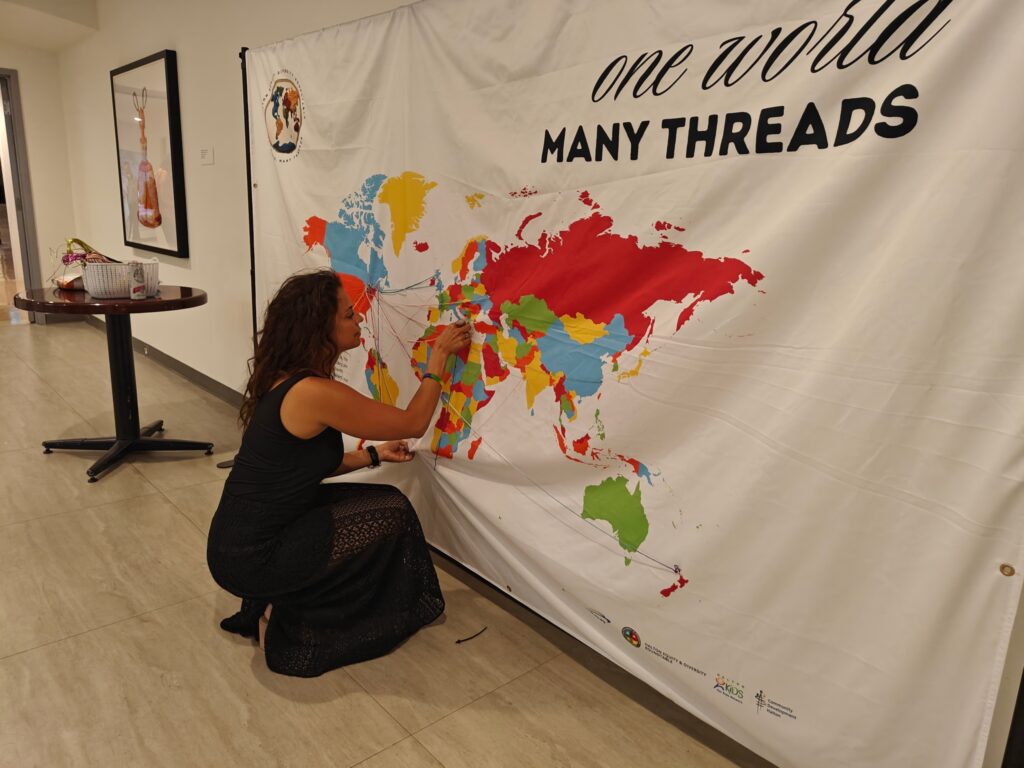
Weitz covered human identity as background into understanding the population under discussion; including explanations of assigned sex, gender, gender expression — “How we take up space” — attraction, and the 2SLGBTQI acronym itself. They noted that all the different words that describe gender and sexuality are necessary, as it can be “life-changing” to discover a word that feels correct to describe one’s own self: “To not have a word that feels like you can feel very lonely. …And to find a word [that fits] can feel like home.”
The organizational impact of discrimination against people in the 2SLGBTQIA+ community, Weitz explained, can be felt on more than one level: the interpersonal and organizational levels, and these are interrelated. The interpersonal level of discrimination comes in the form of microaggressions, those “common everyday interactions”; organizational discrimination, on the other hand, includes non-inclusive policies, practices, and workplace culture.
The impact of anti-2SLGBTQIA+ discrimination was illustrated statistically: 39% of people surveyed had personally experienced discrimination within the workplace; 46% do not disclose their gender/sexuality at work due to fear of being bullied and isolated; 49% of trans people surveyed did not get a job (or suspected that they did not get a job) because they were trans; 55% fear that transitioning at work would negatively affect their chances for a future promotion. Egale also reports that 30% of openly 2SLGBTQIA+ people leave their workplaces because they feel unwelcome or unsupported by management.
Weitz then asked the audience about policies and practices within their own organizations or practices they’d heard of at other workplaces that were inclusive and worked to “minimize barriers in the workplace.”
Discussion on this topic revealed that some organizations provided their employees with benefits like time off for pet bereavement and new puppy adjustment time, inclusive and comprehensive health insurance, and elder care support.
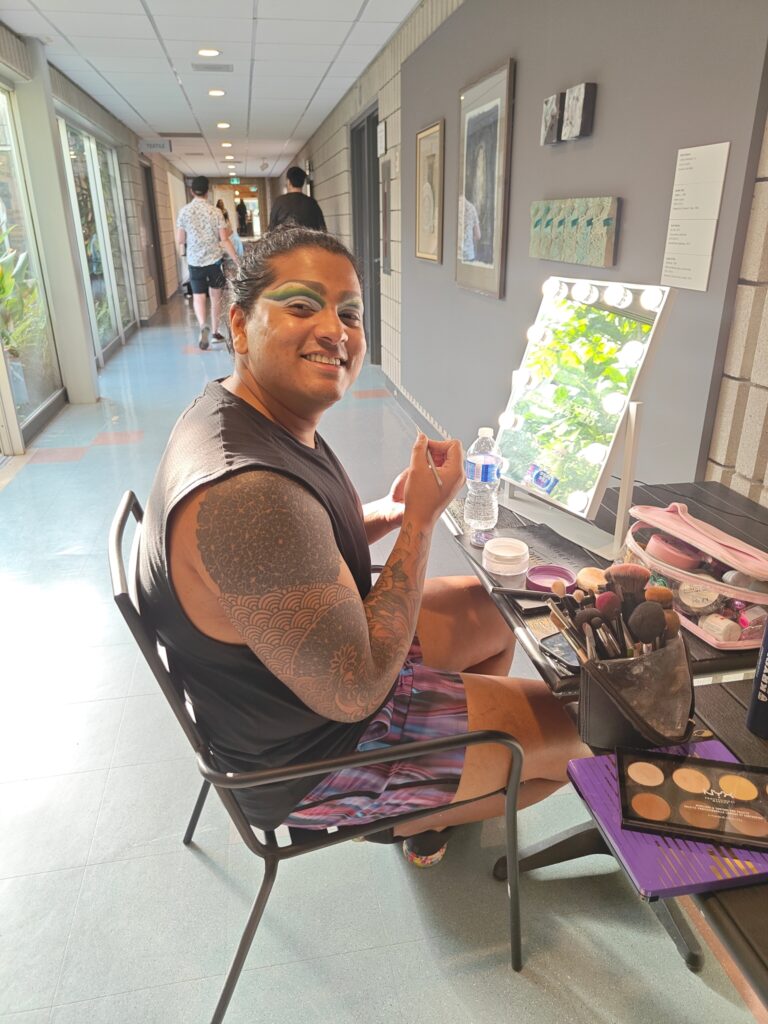
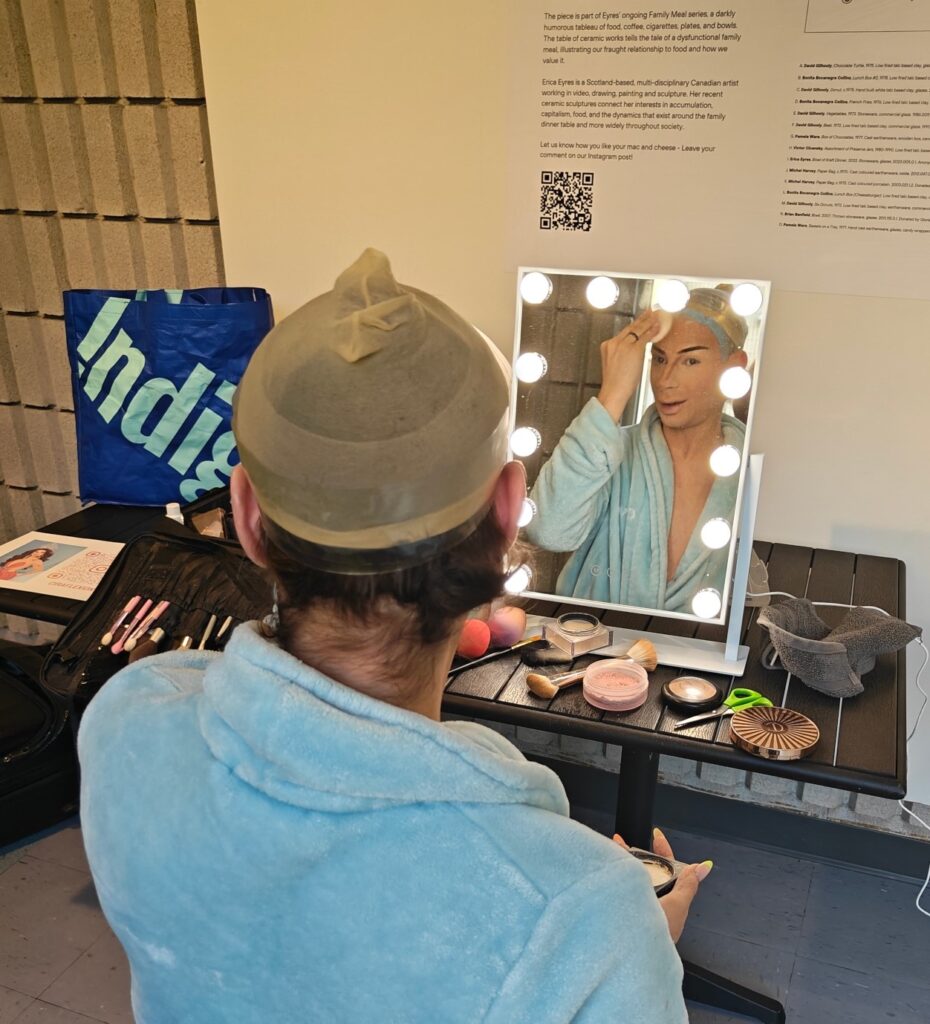
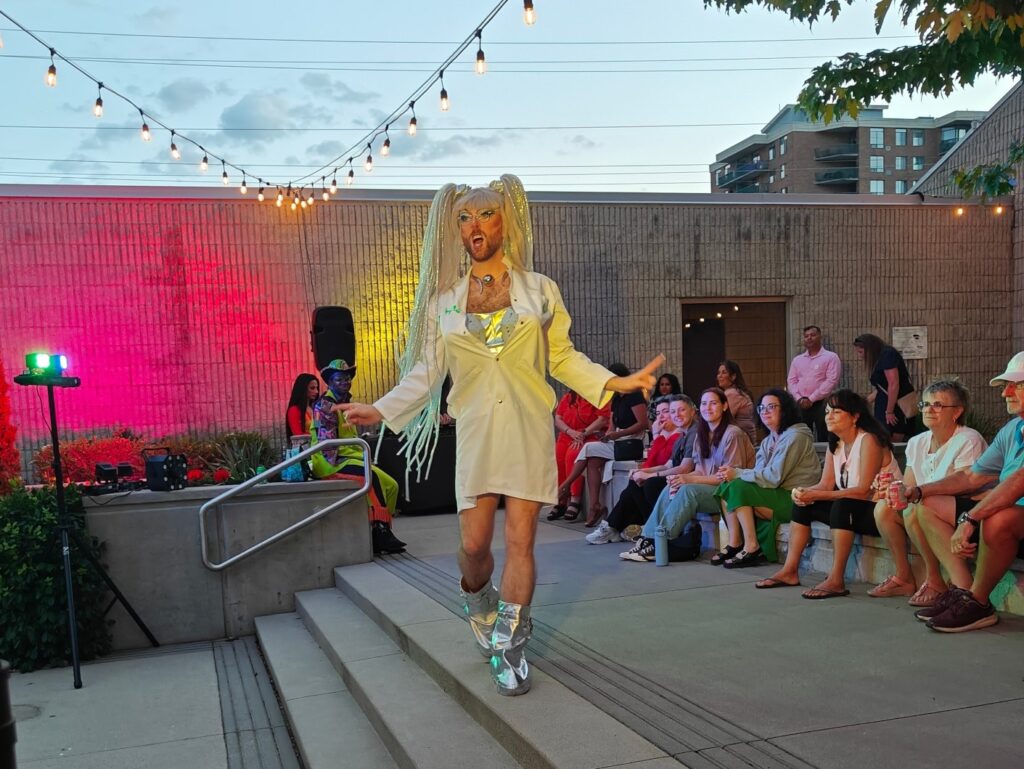
Weitz then outlined what they called “the business case for 2SLGBTQI inclusion”: that is, when workplaces make inclusion a priority and remove barriers for the 2SLGBTQIA+ community, there are financial benefits for organizations. Weitz shared that a company could save an estimated $161,000 per year by way of 2SLGBTQIA+ inclusion, resulting from an increase in staff retention of 17%. When people feel safe at work, they are less likely to leave, making savings for the organization by decreasing the need for re-hiring and training. And many organizations see the point: Egale reports that 92% of the top 50 Fortune 500 companies feel that diversity policies (including sexual orientation and gender identity) are good for business.
A discussion about what could be done to make businesses more inclusive in their hiring practices included DEI statements on job postings; posting the job onto 2SLGBTQIA+ community forums online as opposed to using only the big job sites (think LinkedIn and Indeed); job posting qualifications not including a specific number of years of experience; and sending out interview questions in advance to allow time to prepare.
On the interpersonal level (in interviews, for example), a suggested inclusive practice was hiring managers sharing pronouns during introductions to set a comfortable atmosphere, while on an interface level (in an online application, for instance), an HR employee in the audience shared that their company asks people for their chosen name as well as legal name. All information on the database is collected under their chosen name.
This kind of practice, noted Weitz, not only makes the application inclusive for trans people, but also for people whose legal and chosen names might be different due to a non-English first language, or for Indigenous people who are reclaiming their Indigenous name. Thus, practices that are inclusive of the 2SLGBTQIA+ community are inclusive for everyone.
The lecture was followed by two drag shows in the AGB’s courtyard, with the crowd sitting and standing around the space. The two drag shows illustrated the range of performers who undertake this art form: there was Molly Kewl, a science-loving and sometimes-bearded drag queen, drag king Manny Dingo, drag queen and Sheridan College professor Guy Anabella, and Toronto-based drag queens Renona, Cira Flexion, Dahlia Doll, and Miss Fiercalicious, who placed in the top four of Canada’s Drag Race, season three.
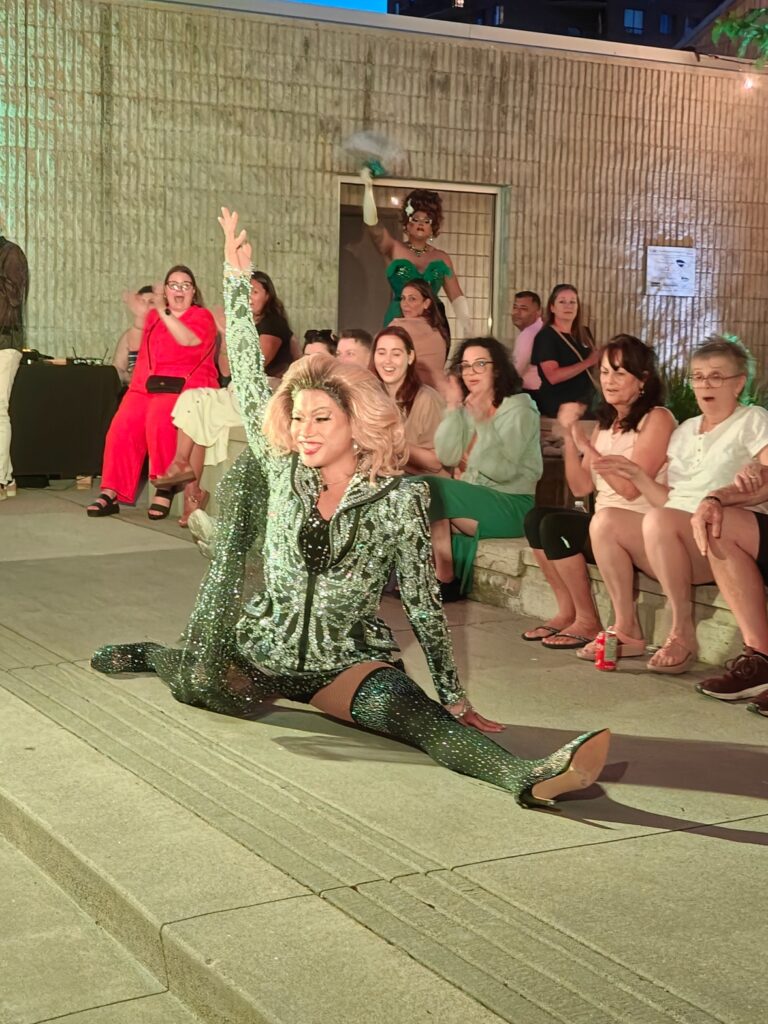
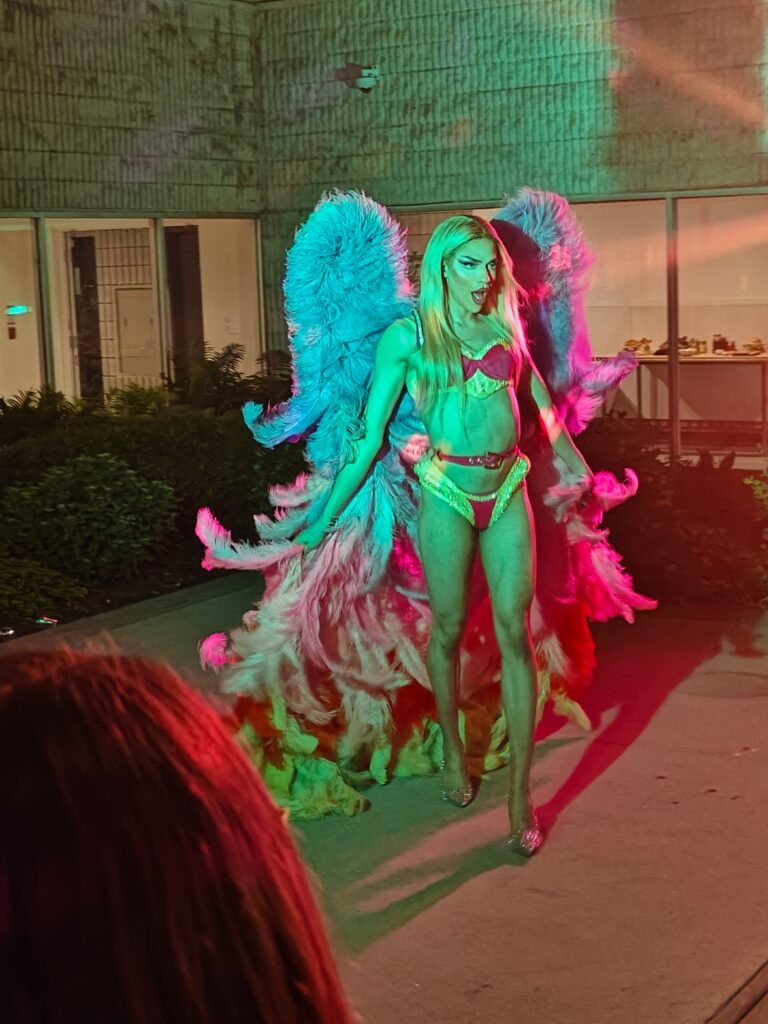
The performers danced, spun, jumped and landed in splits on the concrete of the AGB courtyard to gasps from the crowd — all in heels, “eight pairs of tights,” according to host Renona, and full beats (a full face of makeup, for the uninitiated) despite the hot weather. Manny Dingo, an arresting and athletic performer, danced to the beat of the song played by DJ Astro while standing on his head. Miss Fiercalicious was arguably the headliner of the night, with a magnetic performance featuring full-length feathered wings, removed later for her second song.
The Pride Lecture and Garden Soiree was part of HEDR’s continuing efforts to foster equity in Halton; as noted on their website, they are “dedicated to promoting equity, diversity, and inclusion within the Halton region.” Their next event, Echos of Reconciliation Art and Music Festival, will be on September 20 at the Burlington Music Centre (2311 New St.). For more information on HEDR, click here to go to their website.
